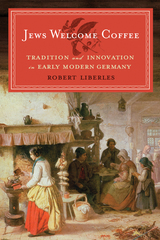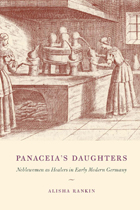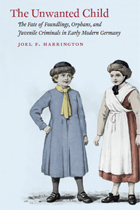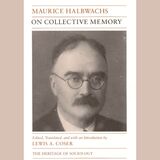
Renowned German social historian Heide Wunder refers to the cosmic image contained in the 1578 Book of Marital Discipline that characterizes the relationship between husband and wife. Today, "He is the sun, she is the moon" might be interpreted as a hierarchy of dominance and subordination. At the time it was used, however, sun and moon reflected the different but equal status of husband and wife.
Wunder shows how the history of women and the history of gender relations can provide crucial insights into how societies organize themselves and provide resources for political action. She observes actual circumstances as well as the normative rules that were supposed to guide women's lives. We learn what skills were necessary to take charge of households, what people ate, how they furnished their homes, what birth control measures were available, what role women played in peasant protest. Wunder finds that, in addition to the history of losses and setbacks for women observed by so many current interpreters, there is a history of gains as well. The regency of noble women was normal, as was the shared responsibility of wife and husband in a peasant household, an artisan's workshop, or a merchant's business.
Using sources as diverse as memoirs, wedding and funeral sermons, novels, and chronicles, and including a wealth of demographic information, Wunder reveals a surprising new image of early modern women and provides a richer interpretation of early modern Europe.



The baby abandoned on the doorstep is a phenomenon that has virtually disappeared from our experience, but in the early modern world, unwanted children were a very real problem for parents, government officials, and society. The Unwanted Child skillfully recreates sixteenth-century Nuremberg to explore what befell abandoned, neglected, abused, or delinquent children in this critical period.
Joel F. Harrington tackles this question by focusing on the stories of five individuals. In vivid and poignant detail, he recounts the experiences of an unmarried mother-to-be, a roaming mercenary who drifts in and out of his children’s lives, a civic leader handling the government’s response to problems arising from unwanted children, a homeless teenager turned prolific thief, and orphaned twins who enter state care at the age of nine. Braiding together these compelling portraits, Harrington uncovers and analyzes the key elements that link them, including the impact of war and the vital importance of informal networks among women. From the harrowing to the inspiring, The Unwanted Child paints a gripping picture of life on the streets five centuries ago.
READERS
Browse our collection.
PUBLISHERS
See BiblioVault's publisher services.
STUDENT SERVICES
Files for college accessibility offices.
UChicago Accessibility Resources
home | accessibility | search | about | contact us
BiblioVault ® 2001 - 2024
The University of Chicago Press









